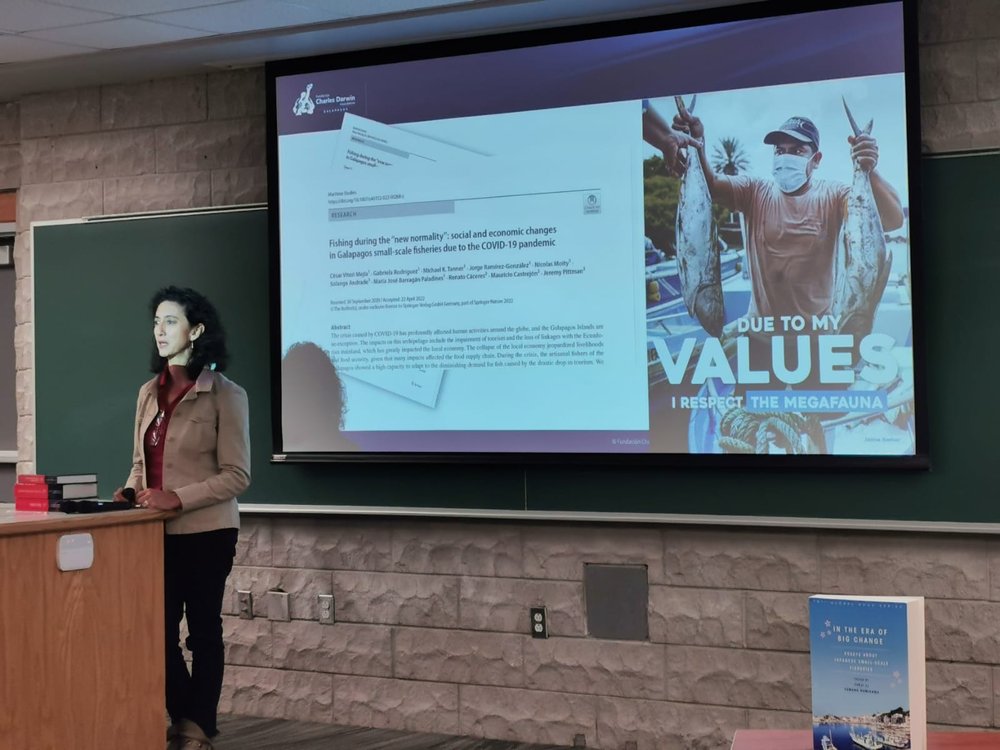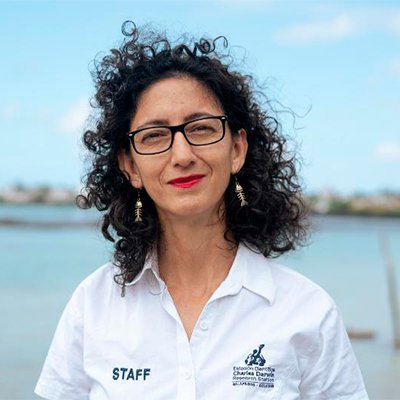Exploring the crucial intersection of marine conservation and small-scale fisheries at the "Too Big to Ignore – Global Network for Small-scale Fisheries Research" event
Memorial University of Newfoundland, St. John’s, 20-24 November 2023
Marine conservation and artisanal fisheries are directly connected: healthy oceans, healthy human communities. Small-scale fisheries are a sector that represents an important source of economic revenues, a source of high-quality protein, a socially-based infrastructure that sustain fishing and non-fishing communities, for a large part of the world's population.
Due to the importance of small-scale fishing, November 21st has been declared World Fisheries Day. Under this premise, several events were held at the Memorial University of Newfoundland (MUN), in St. John's, Canada, to celebrate the different initiatives around the world that are strengthening the role of this sector within marine conservation under different formats.
The Too Big to Ignore - Global Network for Small-scale Fisheries Research (TBTI) organizes various events featuring cases from Bangladesh, Canada, Canary Islands, Galapagos Islands, Japan and Mexico. These were presented as examples of success, but also as challenging stories that could serve as inspiration and learning platforms for other stakeholders who are willing and in need to address marine conservation while at the same time tackling economic and social dimensions of human communities.
As Science Director at the Charles Darwin Foundation (CDF), I participated in these series of events because have been part of this research network for more than a decade. The TBTI-Global initiative has promoted the creation of national chapters (e.g., TBTI-Ecuador) that integrate expertise in diverse disciplinary approaches to address small-scale fisheries research. Recently, CDF, has launched the national TBTI-Ecuador, which integrates a national network of varied professionals around the country who are related to small-scale fisheries focused research.
Guardians of the Sea: Celebrating World Fisheries Day with Inspiring Initiatives for Generations to Come

In Galapagos there have been and still are initiatives for marine conservation and fisheries transdisciplinary research, intended to better understand and be able to describe and analyze the biggest questions and largest needs of small-scale fisheries, marine conservation and the demands by local stakeholders and decision makers.
Along the week, I did presentations in varied formats, within several instances and target groups: under and post-graduate students, faculty, decision makers, managers, fishers, community members, practitioners, among others were present on those different moments. The Geography Department at MUN, the Sheraton Hotel and the Alt Hotel were the venue to host these events, and were fruitful discussions and in-depth conversation about artisanal fisheries, occurring in the varied countries and locations, are taking place. Within the context of World Fisheries Day, we explored the initiatives that have been implemented worldwide and that are currently underway concerning small-scale fisheries, spanning biological, social, economic, cultural and governance aspects. Our conclusion highlighted that all these efforts involve phases of participation, research, and strategic relationship-building and network.
Artisanal fisheries remain as a key sector that goes beyond the economic importance. Fishing is a way of life and art that promote social cohesion, community strengthening practices and human wellbeing. The importance of this sector is looked at by professionals, scientists and members of the TBTI Global Network, from different perspectives.
Currently, one illustration of innovative approaches towards marine species conservation and improving fishing practices, could be seen with the implementation of the recently started project: Habla Tiburón , an initiative that will strengthen artisanal fisheries in Galapagos and in the Ecuadorian coastal region whereas at the same time, promoting conservation of sharks and rays, nationally. CDF in collaboration with WWF-Ecuador launched the Habla Tiburón ! Project, with the support of USAID. This project promotes responsible fishing practices in order to promote the conservation of shark and ray species. This initiative is of interdisciplinary nature and aims to become an example of improved fisheries governance that encompasses fishing practices and market strategies for better governance of fishery resources in the Exclusive Economic Zone, including Galapagos and continental waters of Ecuador.
Marine conservation is a global priority. Therefore, the importance of these events lies in the possibility of connecting local, national and global initiatives and planning joint actions to achieve common objectives in the marine conservation superior aim, in this case, through small-scale fisheries sector, within the entire value chain dimensions: pre-harvest, harvest and post-harvest dimensions.
In my experience, these learning-teaching interactions with researchers, government officials, NGO representatives, community members from Newfoundland and various regions of Canada, along with international panelists from Bangladesh, Canary Islands, Galapagos Islands, Japan and Mexico prove to be very effective. These sessions provide tangible examples of successful practices in this field, enabling us to replicate them during the implementation of our own project.
The interactions and participation of students of third and fourth year was important since this allows the inclusion of young generation in these discussions of high relevance. It is of utmost importance to inspire the next generations, globally, to continue looking at small-scale fisheries as a crucial sector and activity, and as one of the pillars that sustains food worldwide and the economies of millions of families.
During these days, the dedicated professionals of the TBTI Global Network for Small-scale Fisheries Research have developed a comprehensive short- and medium-term plan that illuminates our path to a more sustainable future... It is our hope for a better future where harmony between humanity and the sea is the fundamental premise - may this commitment inspire change and usher in a more prosperous and balanced marine future for all!







